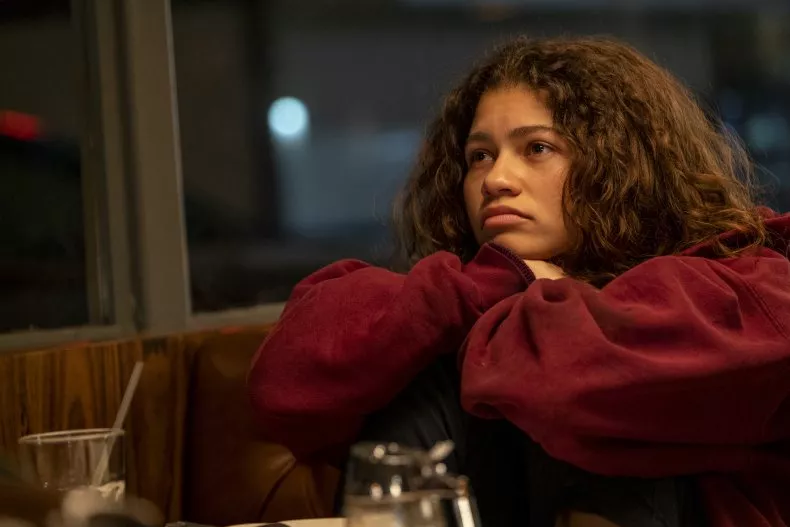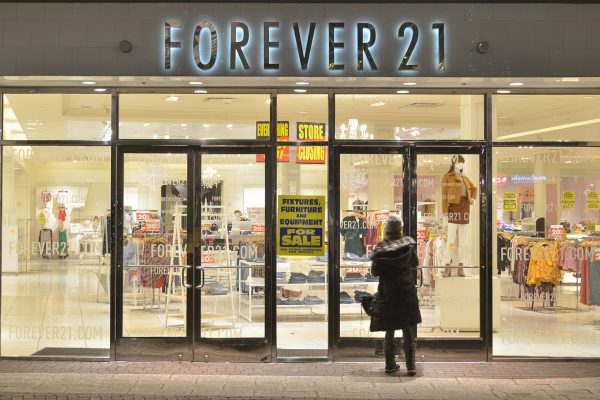A Character Analysis of Euphoria’s Rue
** SPOILER ALERT
Gripping, intoxicating, and yet so contentious, HBO’s Euphoria has surely revolutionized the definition of “teen drama” in the cinematic sphere. The series is known for boldly delving into the raging world of drugs, abuse, and sexual encounters, all while assembling a group of seventeen and eighteen-year-olds as its main characters. It’s no secret that the events that transpire in the show often contribute to a far more hyperbolized and darker portrayal of adolescence than what is truly experienced by most kids at this age. After all, it’s not every day you see a pair of teens doing “molly” at a “family-friendly” carnival. However, as most viewers would argue, Euphoria’s strength does not lie in realism within the plot itself, but rather in the genuine manner the characters respond to what occurs around them. The craze, the passion, the uncertainty, the feeling that at any given moment your whole life could come crumbling down…All the emotions that accompany a person throughout their teenage years are woven together to form the foundation of the series. Creator and director Sam Levinson enjoys peering into the traits, attitudes, and traumas of each of his characters, which perhaps is why much of Euphoria’s fame is attributed to the complex nature of these teenagers – all of which are deserving of closer analysis. For this article, we’ll focus on the show’s narrator and leading figure, Rue Bennett.
Played by the phenomenal Zendaya, Rue is undoubtedly one of the most intriguing personalities to ever enter the TV screen. From the outset, her troubles are less than transparent: diagnosed with severe ADD, OCD, depression, and anxiety, she’s a drug addict who has recently lost her father, and who spends most of her time lying about being recovered when she’s still very much enslaved to old habits. Fortunately and unfortunately, some of her pain is relieved when she meets the new girl in town, Jules Vaughn. On the one hand, the intimate friendship formed between the two welcomes enough solace into Rue’s life to a point where she’s willing to abstain from substance abuse. At the same time, however, her fondness of Jules readily swells into a sense of dependency that is not the least healthy. Nearing the end of season one, her sole source of happiness becomes Jules, and when the latter leaves her stranded by heedlessly running away from home, Rue is faced with unbearable disillusionment, and naturally turns to narcotics for comfort. Even when the pair rekindles their connection in season two, it appears as though Jules’s actions impinged too heavily on Rue’s desire to trust her, leaving a strain on their relationship.
For the greater part of season two, Rue is merely a ghost of the person we knew in the previous season, she’s so deeply attached to drugs that she ends up distancing herself from everyone who cares about her, particularly her mother and sister, who are always on the receiving end of her violent outbursts. In this season, her callousness and poor self-esteem filter through every scene, leading her to behave in a volatile and immature way, such as making a perilous deal with a drug dealer who makes a “subtle” comment about potentially kidnapping and trafficking her.
Because she believes that she’s “too far gone,” Rue projects her dejection onto loved ones, advising them to give up on her as she has already given up on herself. Her unsparing words are no different than knives when she circles the town to verbally attack and sink every relationship she had formed since childhood. These actions are reflective of the fact that at the end of the day, Rue is just a child. Yes, she had an early and onerous introduction to substances, one that most viewers can only sympathize with. However, these experiences did not make her more mature. In actuality, they created an immense gap between what Rue is like at a normal state and a drugged one. She’s reserved and hesitant to share her emotions most of the time, and yet when she’s using, she transforms into a walking time bomb that will strike everyone with her unfiltered thoughts, many of which are heightened by her corrupted state of mind. Rue’s rebellious streak is not uncommon among teenagers, even if their relation to illicit affairs are. She reminds us of the frustrations and hopelessness that the pressures of adolescence inflict on a person.
Season two draws to a close with Rue announcing her plans to stay sober, not because it was a conscious decision, but because “it was just easier.” While the audience can only hope that she upholds her promise, the reason she claims for sobriety may be questionable to some. Still, this an advancement from her mentality at the beginning of the season, and that might just last through to the next one as well.






